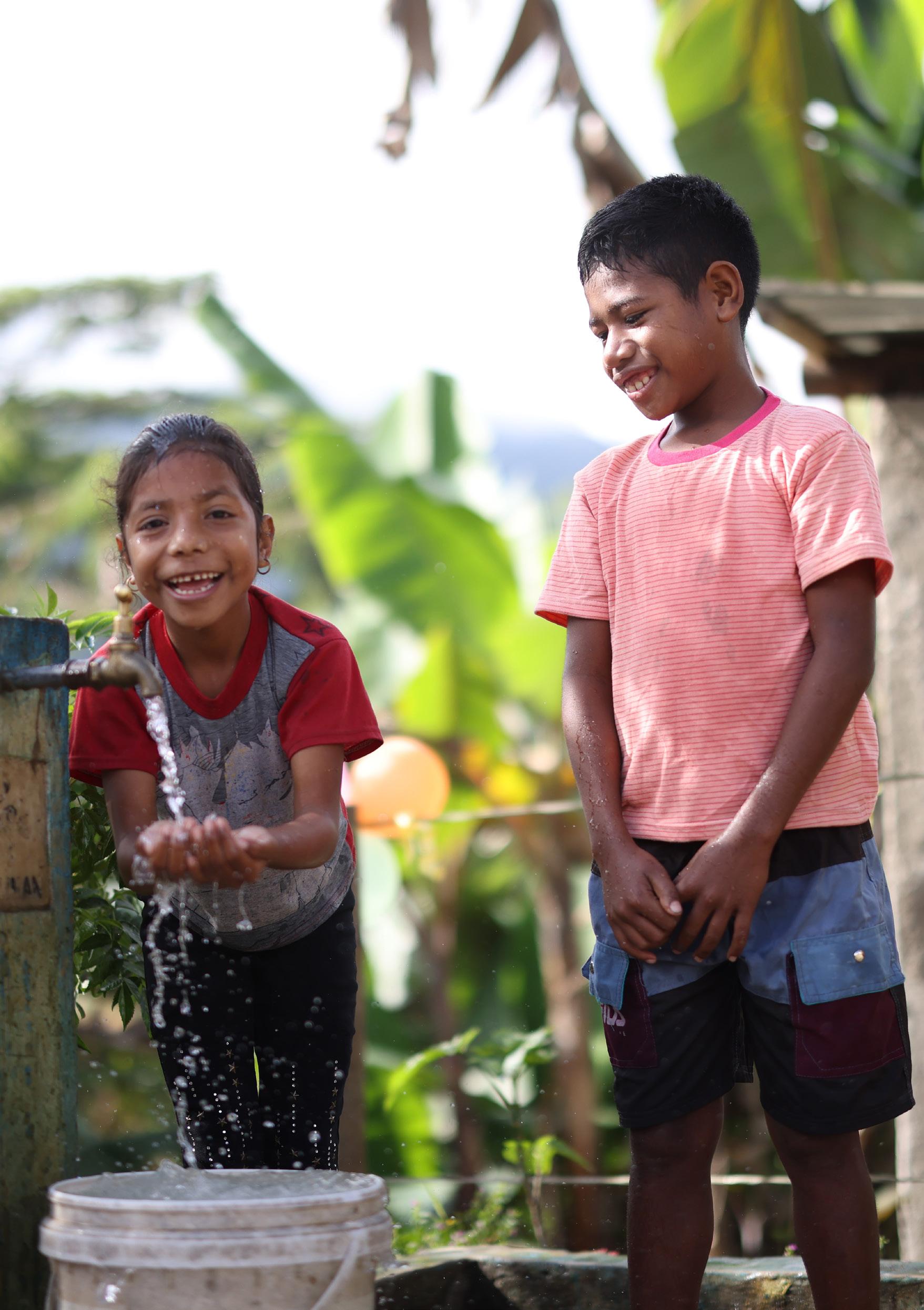
Spring 2022 Your WaterAid Magazine Highlights y WaterAid Around the World y Empowering Woman to be WASH Champions y A Day in the Life of a Sanitation Worker
The crisis
771 million people in the world – one in ten – do not have clean water close to home.
2.3 billion people in the world –almost one in three – lack soap and water for handwashing at home.
1.7 billion people in the world – more than one in five – do not have a decent toilet of their own.
About WaterAid
WaterAid is an international not-for-profit, determined to make clean water, decent toilets and good hygiene normal for everyone, everywhere within a generation.
Find out more: wateraid.org.au
Cover photo: Children collect water from their newly installed water tap in Dalubo, Manufahi municipality, Timor-Leste.
Credit: WaterAid/Tariq Hawari
This copy of Oasis was edited and written by Caity Hall and the WaterAid Australia team. For feedback or article suggestions, please email info@wateraid.org.au
Fast facts on water, sanitation and hygiene:
443 million school days are lost every year because of waterrelated illnesses.
Almost one in three people globally lack soap and water for handwashing at home.
Almost half the world’s population does not have a safely managed sanitation service at home.
Globally, 31% of schools do not have a basic water service.
Stay informed at: wateraid.org.au
Visit wateraid.org.au/ subscribe to sign up for our regular e-newsletter
WaterAidAustralia WaterAidAus
Around 290,000 children die each year from diarrheal diseases caused by dirty water and poor sanitation. That’s over 800 children each day, or one child every two minutes.
If all women and girls had clean water at home, it would save more than 77 million working days every year, which they currently spend collecting water.
2 | Oasis Spring 2022
From our Chief Executive
We are determined to make clean water, decent toilets and good hygiene accessible for everyone, everywhere within the next generation. This is because we know that without these three essentials, people cannot live a dignified, healthy life.
Access to water, sanitation and hygiene (WASH) leads to improved outcomes in health, safety, education, gender equality and work. It allows people to unlock their potential, break free from poverty and change their lives for good. These things should all sound normal. But for so many, they are not.
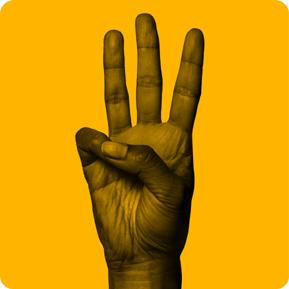
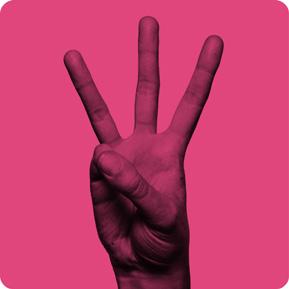
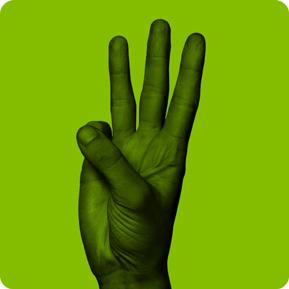
I am pleased to present you with this Spring 2022 edition of Oasis, where you will read about some of the fantastic progress we have made together. I hope these stories inspire you, and highlight the impact you have by supporting WaterAid.
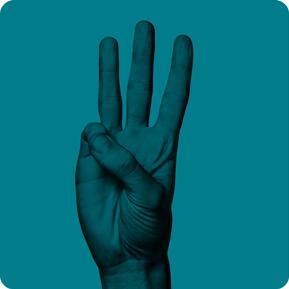 Rosie Wheen Chief Executive – WaterAid Australia
Rosie Wheen Chief Executive – WaterAid Australia
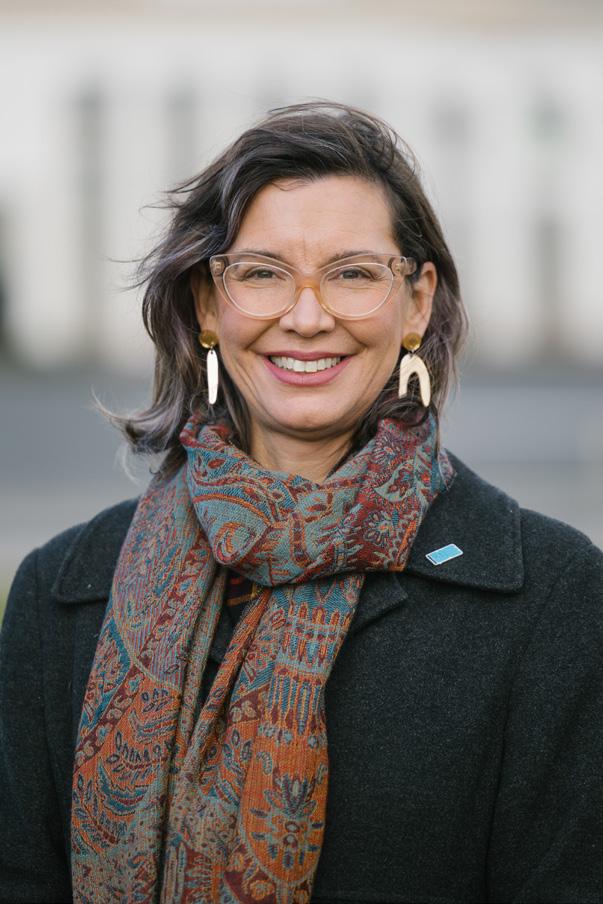

Oasis Spring 2022 | 3
Around the world Cambodia
The pandemic has had a major effect on Cambodia, with the most vulnerable experiencing foot shortages and loss of income. We have been working with local governments and our partners on the ground to provide essentials such as masks, hand sanitiser, soap, and PPE to affected communities and quarantine areas, as well as installing handwashing facilities in public spaces.
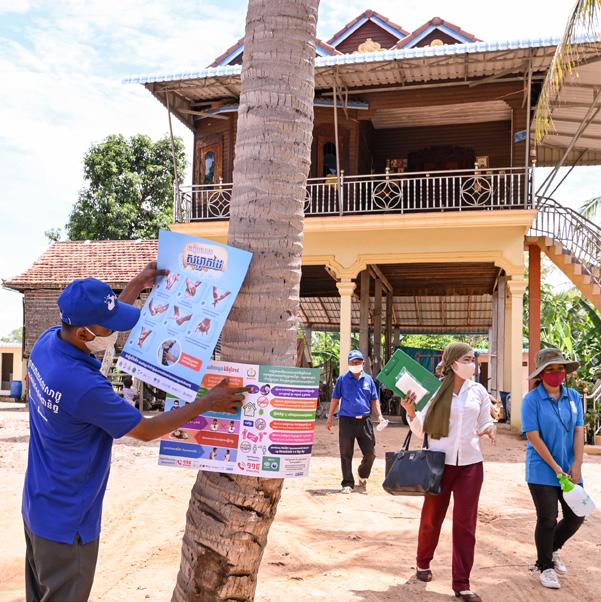
 WaterAid/Ly Heng
WaterAid/Ly Heng
WaterAid/Ly Heng
WaterAid/Ly Heng
What has WaterAid been up to recently? Here are some of the things you and our partners have helped us achieve.
4 | Oasis Spring 2022
Timor
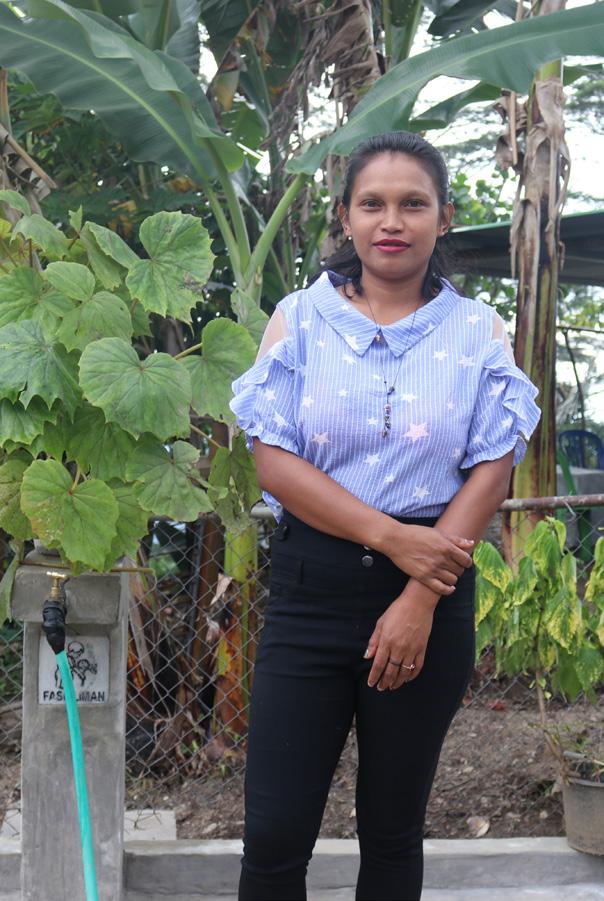
Up until recently, people from this remote village in Bubususu were forced to walk long distances every day to access water, which was particularly challenging for children and pregnant women. We have installed a water system in the village, which will provide clean water to over 1400 people.
Colombia
We recently constructed three sanitation facilities in primary schools in Pactain, Opotuleka, and Achauapana. Each facility includes a separate space for boys and girls, a hand washing station, and drinking facilities. That means over 560 school children now have access to a decent toilet!
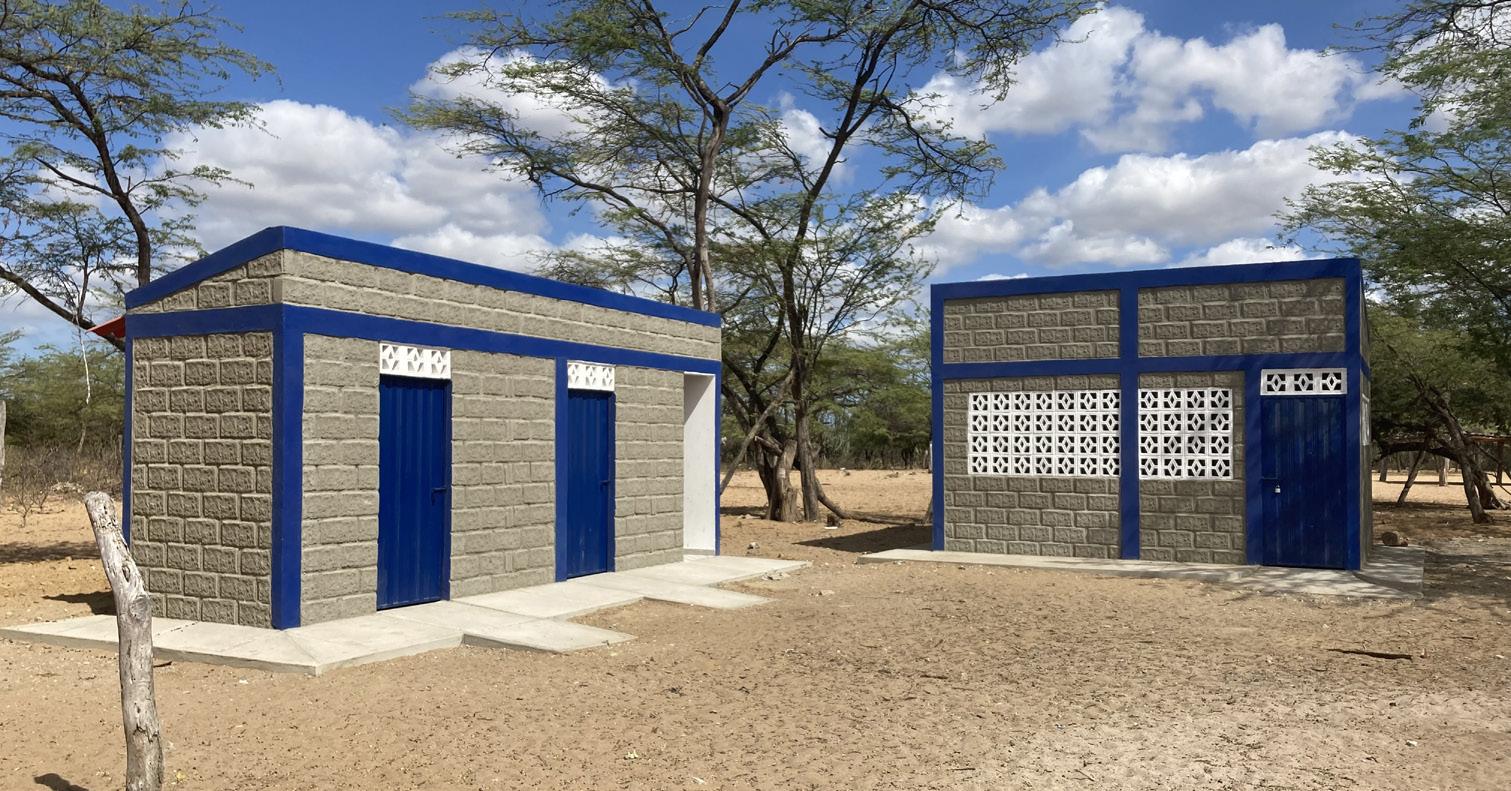 WaterAid
WaterAid
WaterAid
WaterAid
Oasis Spring 2022 | 5
Empowering women to be WASH champions in rural Cambodia
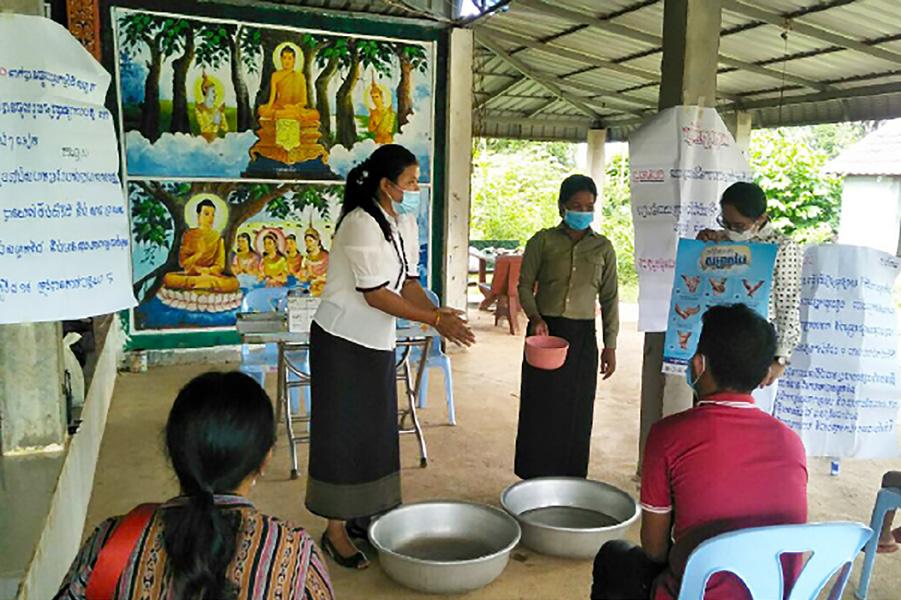
We know that when communities don’t have access to basic water, sanitation and hygiene (WASH), it is women and girls who are disproportionately affected. They will spend more time collecting water, they will struggle to safely manage menstruation, and girls will most likely miss school for both of these reasons. But we also know that when given the opportunity, women and girls can be a powerful force for change.
That is why we launched a program designed to empower women and girls throughout rural Cambodia
to become champions of WASH.
The program provided mentoring opportunities, networking events, and training in things such as leadership, public speaking, and teamwork, to give women the tools they need to improve the WASH situation in their communities and beyond.
The program also provided training to men on how gender inequality impacts society, why women are impacted more by WASH-related issues, and why it is so important to involve them in the solution.
WaterAid/Wedu 6 | Oasis Spring 2022
Tout Bora, who lives in Kandal Steung district and belongs to a working group that provides support to vulnerable women and children, is an example of the powerful role that women play in WASH awareness in communities. Bora believes women are particularly suited to be leaders.

“I think women feel more connected to their own communities,” she said. “Also, villagers and people seem to trust female leaders, they are more open to talking and listening. This is why it’s important to have at least one female leader in every community.”
The program has also caused positive change at a national level. Thavy Chy, who is the director of the Provincial Department of Rural Development, says noticing the positive changes women were making in communities helped her to shape the department’s approach to increasing WASH services in working areas. Chy and her team believe the empowerment of woman and girls through WaterAid’s program has significantly increased access to clean water and made progress towards open defecation free status throughout rural Cambodia.
WaterAid/Wedu
Oasis Spring 2022 | 7
A Day in the Life
In Cambodia, sanitations workers face unsafe working conditions and stigma from the community. We have been supporting these workers by providing personal protection equipment

such as boots and gloves, and by supporting them to share their experiences in order to influence policy makers to improve working conditions.
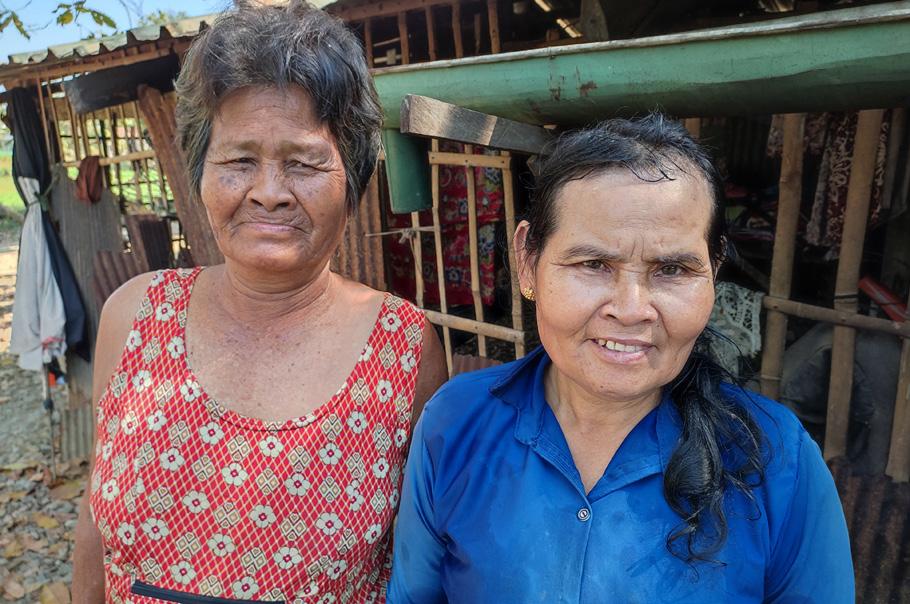
Name: Seng Touch Age: 52 Lives: Battambang province, Cambodia Occupation: Sanitation WorkerWaterAid/Dep Kimny WaterAid/Dep Kimny
(PPE)
8 | Oasis Spring 2022
What are your living arrangements?
Where do you collect water?
What does your work involve?
I live in a rented house with a 72-year-old relative who is under my care. I regard her as my sister and she helps fetch water for me to cook our meal.
We collect the water from another house about 200m away
I am a sanitation worker and the only woman in the whole team. I have been in this job for over five years now. In repairing the sewer, I perform various tasks – like fetching sand and cement, helping open the lid using crowbar, collecting the trash from the sewer and putting it on a truck, removing soil to open the path for water to run into the sewage. When there is a heavy rainfall, the gutter is usually blocked by dirt and trash and I remove them to open the passage for the water into the sewer.
What do you hope for?
I wish to see the residents in Battambang city have greater awareness about the sewage problem, better manage their trash and not discriminate against sanitation workers.
You can support people like Ms. Touch by visiting:
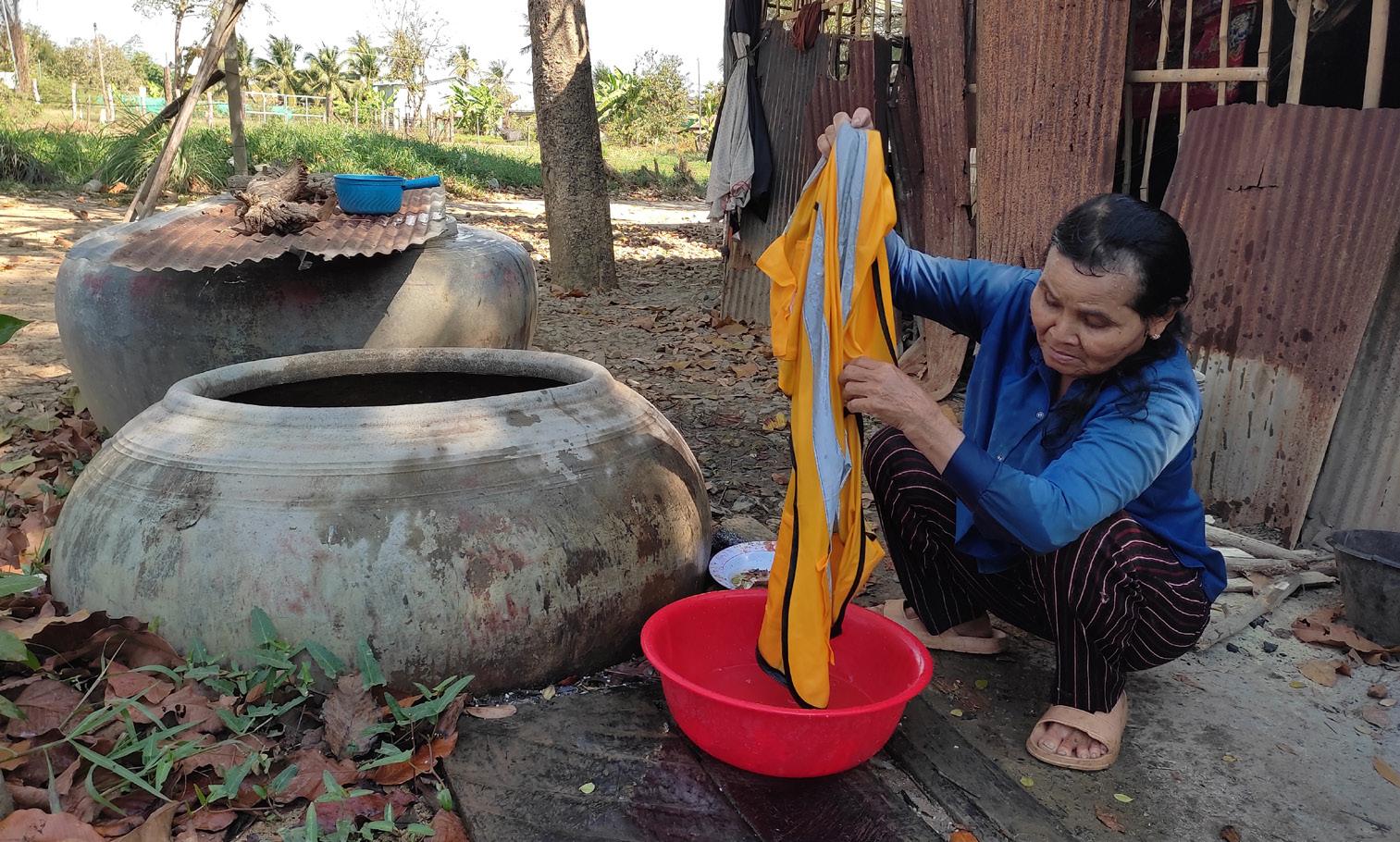
https://www.wateraid.org/au/donate
WaterAid/Dep Kimny
Oasis Spring 2022 | 9
Our Supporters
How you can celebrate with clean water
Sick of socks for your birthday? Don’t want to end up with three toasters as wedding gifts? Find out how to set up a fundraising page for family and friends to celebrate your special day at fundraise. wateraid.org.au/
Glynis shows generosity on her 70th birthday
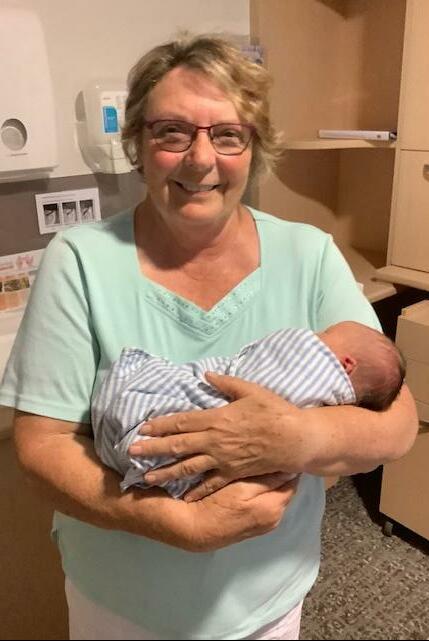
“On my 70th birthday I thought about how much I have in my life. I don’t know hardship and I have often seen stories about the hardship others face. Rather than acquire more material things in my life I wanted to make my birthday count. Water is life. We cannot survive without it.
I wanted others to have a somewhat better life. Even in a small way I could do something for others. So a few friends who I knew would be happy to participate, I sent them a message: Please no gifts. $25 from each family will help provide clean water for a village. We will never know who they are or how it will change their lives. But be assured we have made a difference. Everyone contributed.
It is the best gift I could have received, along with my first grandchild. If you find you have so much material things in your life, ask yourself, “I’m changing the lives of others” it’s the best gift you will ever receive. “
WaterAid 10 | Oasis Spring 2022
Other ways to support WaterAid
A gift in your will could amount to more than you could ever imagine.
When you add a gift to WaterAid in your will, you are bringing clean water, decent toilets and good hygiene to future generations.
Your legacy could be the taps and toilets that transform communities, schools and health centres. With your gift, an entire community could be empowered to change its future, creating hope and prosperity for all.
Consider the type of gift you’d like to leave.
A pecuniary bequest.
This is a gift of a specified dollar amount. At the time you create or amend your Will, you can choose to leave a set dollar amount to WaterAid.
A share of your estate or residual bequest.
A residual bequest is a percentage of what remains of your estate after all other gifts and expenses have been distributed.
A specific bequest.
A specific bequest is something of value such as an antique, painting, property, shares or an insurance policy that you choose to set aside.
At the health centre in Tanzania where Dr Machella works, the lack of clean water was a matter of life and death. Because of kind donations like those left in a will, the centre now has a supply of clean water available at all times.
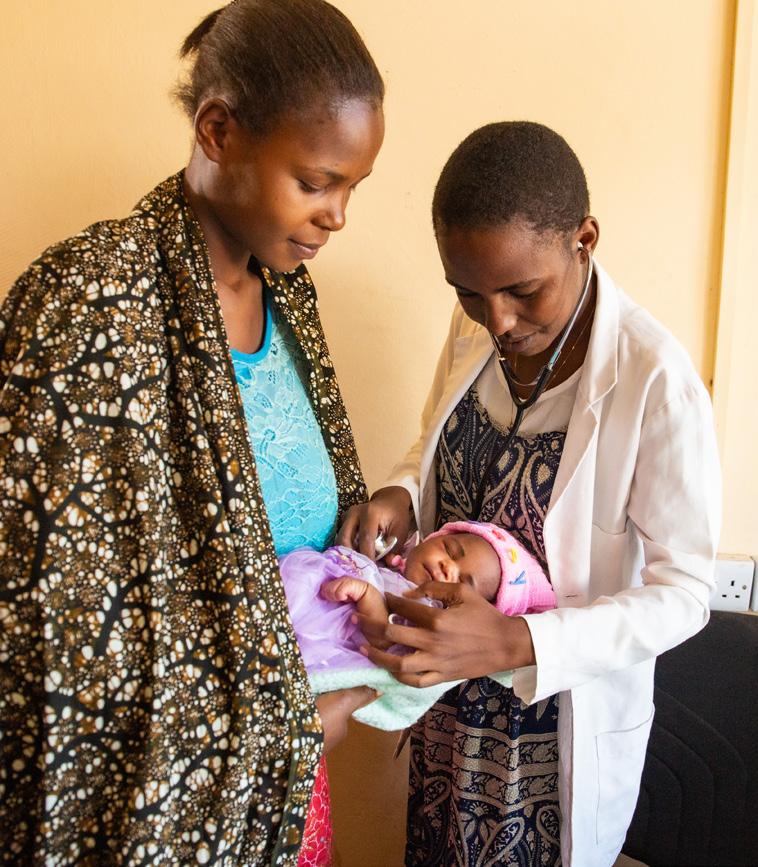
Talk to our specialist team at WaterAid.
We know that leaving a legacy is a personal matter you will want to think through carefully. If you have any questions, please do get in touch with our Supporter Care team on 1300 858 022 or email info@wateraid.org.auwe are here to help. You can also visit wateraid.org.au to find out more about gifts in wills.
WaterAid/ James Kiyimba
Oasis Spring 2022 | 11
Your support makes a difference
I/We (Surname/Company) Given Name/ABN Name of Financial Institution Address of Financial Institution Signature Today’s Date / / Donations of $2 or more are tax-deductible. Please send me information about including a gift for WaterAid in my Will. Please send me information about Workplace Giving. Card Holder’s Name Expiry Date / Signature Today’s Date / / 3 Albert Coates Lane, Melbourne, Victoria, 3000 info@wateraid.org.au Fax: 03 9001 8260 ABN 99 700 687 141
You can help provide clean water, decent toilets and good hygiene to the world’s poorest communities. Simply complete this form. Thank you. Please return to: WaterAid Australia Reply Paid 93092 MELBOURNE VIC 3000 Or call 1300 858 022 or visit www.wateraid.org/au Title First Name Last Name Address Suburb State Postcode Email Date of Birth / / Phone ( ) Mobile WaterAid Australia (ABN 99 700 687 141) uses your information to process donations and communicate with you about your support and our work. We will only disclose this information with service providers to fulfil activities relating to our fundraising or if required by the law. To update your information or subscription, please call 1300 858 022 or to view our privacy policy visit our website at wateraid.org.au Please note that all donations are used to support programs including, but not restricted to, the ones described in this mailing. Credit Card Visa MasterCard AMEX Diners Cheque/Money Order (enclosed) payable to WaterAid Australia. Direct Debit (monthly giving only) PRINTED ON RECYCLED PAPER I will give $ via the payment method below. please make the amount indicated a monthly gift until further notice. AND Account No.BSB Email receipt Card No.





 Rosie Wheen Chief Executive – WaterAid Australia
Rosie Wheen Chief Executive – WaterAid Australia


 WaterAid/Ly Heng
WaterAid/Ly Heng
WaterAid/Ly Heng
WaterAid/Ly Heng

 WaterAid
WaterAid
WaterAid
WaterAid






